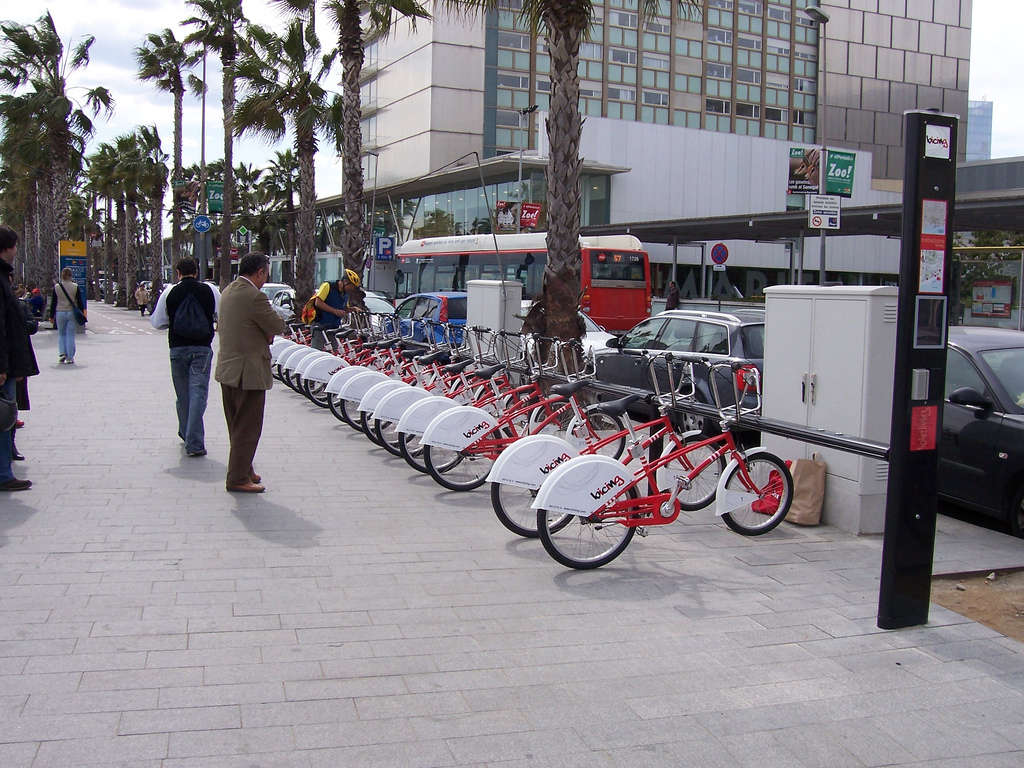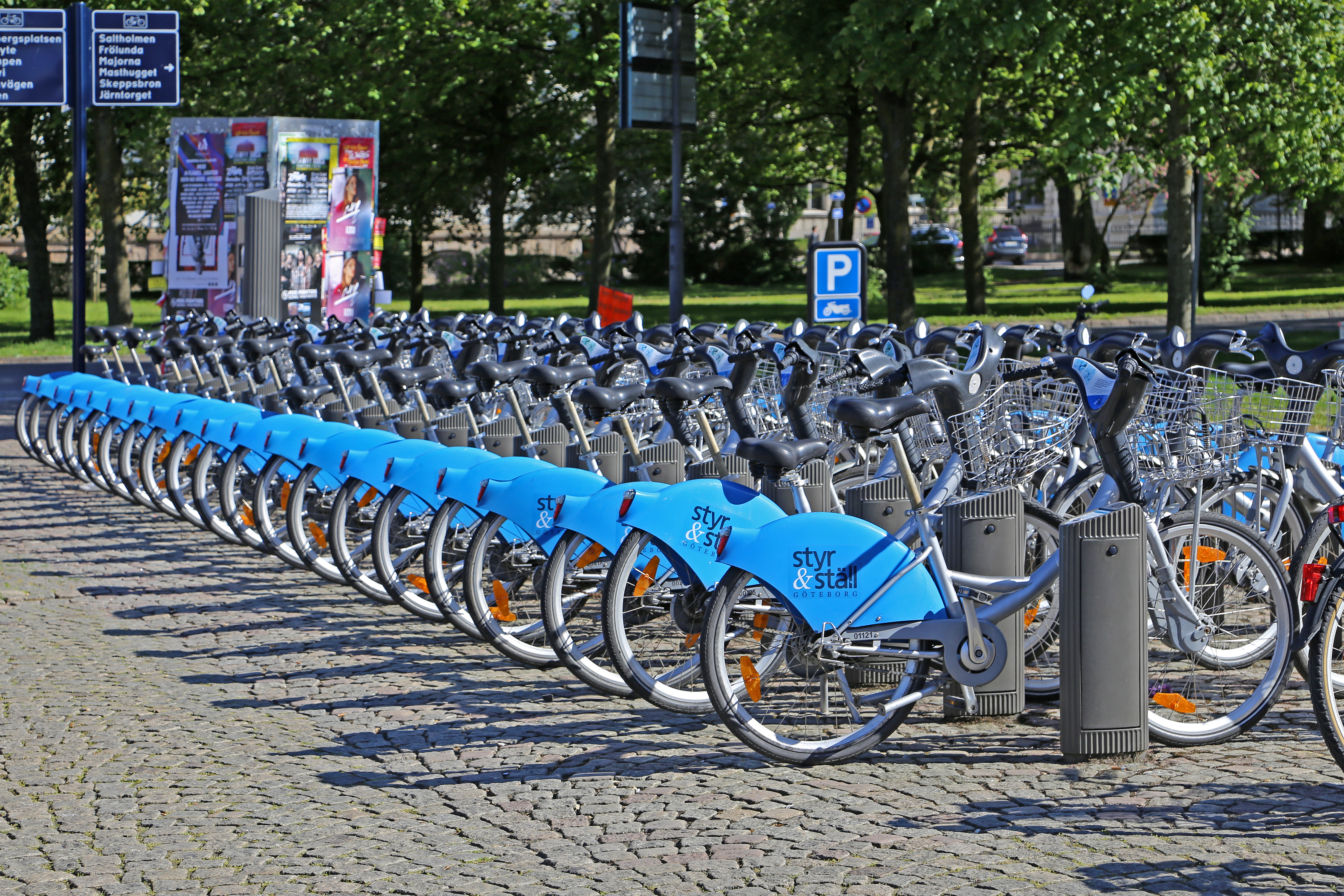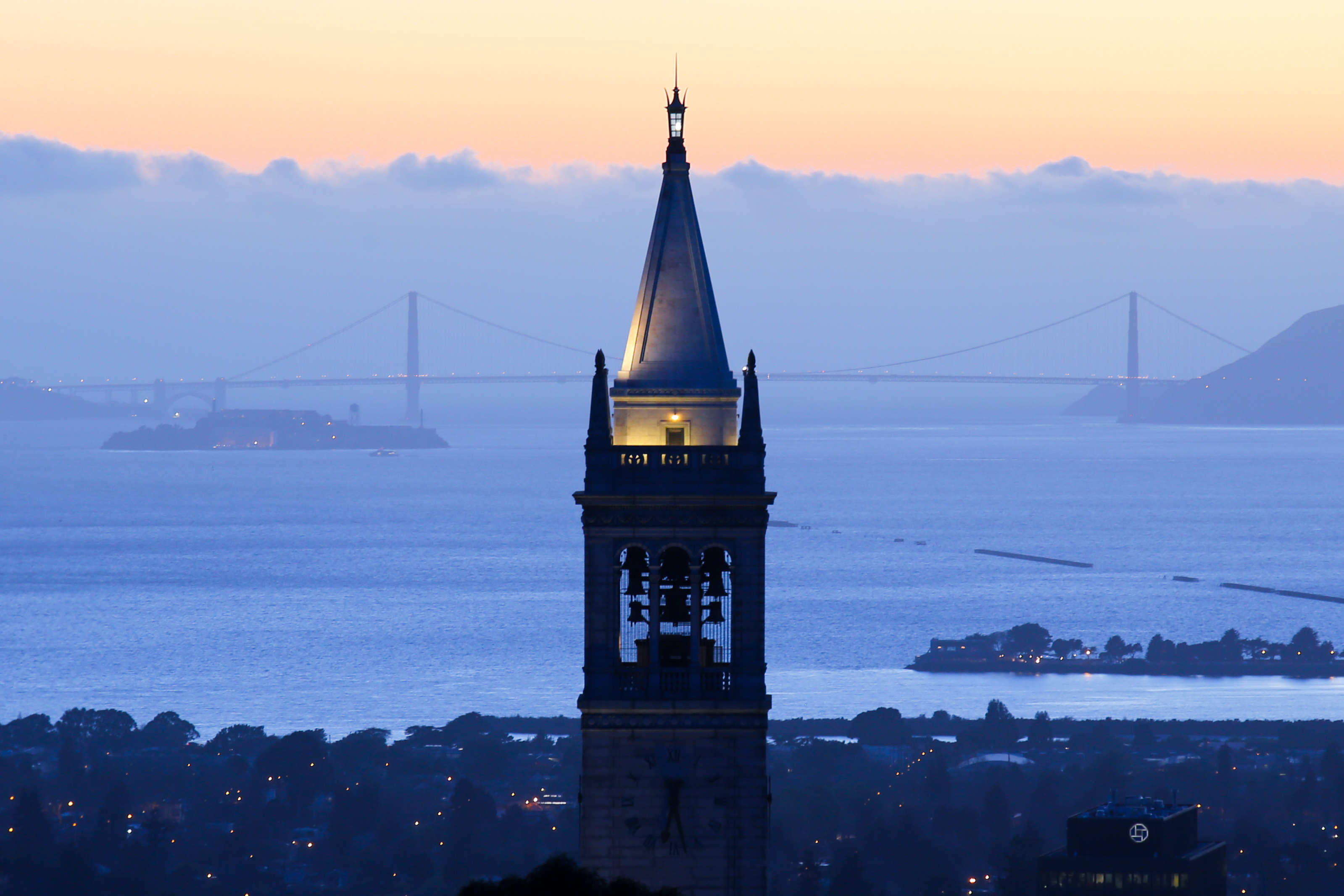|
Hangzhou Public Bicycle
Hangzhou Public Bicycle () is a bicycle sharing system serving the city of Hangzhou. As of January 5, 2013, with 66,500 bicycles operating from 2,700 stations, it was the largest bike sharing system in the world, although it has since been overtaken by a number of dockless bike share operators such as Mobike. It is the first bike-sharing system in China. It plans to expand to 175,000 bikes by 2020. Due to growing motorized traffic congestion and concerns over the environment, the Hangzhou Public Transport Corporation launched bike-sharing on May 1, 2008, initially starting with 2,800 bicycles, 30 fixed stations, and 30 mobile stations (stations which can be moved to meet demand). In March 2011, it had 60,600 bicycles, and 2,416 stations. In The Hangzhou government invested 180 million yuan ($26.35 million) to launch the program, and 270 million yuan ($39.53 million) in discounted loans. Goals The purpose of the Hangzhou bike-sharing system is to provide a free publ ... [...More Info...] [...Related Items...] OR: [Wikipedia] [Google] [Baidu] |
List Of Bicycle Sharing Systems
This is a list of bicycle-sharing systems, both docked and dockless. As of December 2016, roughly 1000 cities worldwide have bike-sharing programs.Bike-Sharing Programs Hit the Streets in Over 500 Cities Worldwide Earth Policy Institute; Larsen, Janet; 25 April 2013 Bicycle sharing systems The following table lists bicycle-sharing systems around the world. Most systems listed allow users to pick up and drop off bicycles at any of the automated stations within the network. Europe |
Hangzhou, China
Hangzhou ( or , ; , , Standard Chinese, Standard Mandarin pronunciation: ), also Chinese postal romanization, romanized as Hangchow, is the capital and most populous city of Zhejiang, China. It is located in the northwestern part of the province, sitting at the head of Hangzhou Bay, which separates Shanghai and Ningbo. Hangzhou grew to prominence as the southern terminus of the Grand Canal (China), Grand Canal and has been one of China's most renowned and prosperous cities for much of the last millennium. It is a major economic and e-commerce hub within China, and the second biggest city in Yangtze Delta after Shanghai. Hangzhou is classified as a sub-provincial city and forms the core of the Hangzhou metropolitan area, the fourth-largest in China after Guangzhou-Shenzhen Pearl River agglomeration, Shanghai-Suzhou-Wuxi-Changzhou conurbation and Beijing. As of 2019, the Hangzhou metropolitan area was estimated to produce a gross metropolitan product (GDP (nominal), nominal) of ... [...More Info...] [...Related Items...] OR: [Wikipedia] [Google] [Baidu] |
Bicycle Sharing System
A bicycle-sharing system, bike share program, public bicycle scheme, or public bike share (PBS) scheme, is a shared transport service where bicycles are available for shared use by individuals at low cost. The programmes themselves include both docking and dockless systems, where docking systems allow users to rent a bike from a dock, i.e., a technology-enabled bicycle rack and return at another node or dock within the system — and dockless systems, which offer a node-free system relying on smart technology. In either format, systems may incorporate smartphone web mapping to locate available bikes and docks. In July 2020, Google Maps began including bike share systems in its route recommendations. With its antecedents in grassroots mid-1960s efforts; by 2022, approximately 3,000 cities worldwide offer bike-sharing systems, e.g., Dubai, New York, Paris, Montreal and Barcelona. History The first bike sharing projects were initiated by various sources, such as local com ... [...More Info...] [...Related Items...] OR: [Wikipedia] [Google] [Baidu] |
Bicycle Sharing System
A bicycle-sharing system, bike share program, public bicycle scheme, or public bike share (PBS) scheme, is a shared transport service where bicycles are available for shared use by individuals at low cost. The programmes themselves include both docking and dockless systems, where docking systems allow users to rent a bike from a dock, i.e., a technology-enabled bicycle rack and return at another node or dock within the system — and dockless systems, which offer a node-free system relying on smart technology. In either format, systems may incorporate smartphone web mapping to locate available bikes and docks. In July 2020, Google Maps began including bike share systems in its route recommendations. With its antecedents in grassroots mid-1960s efforts; by 2022, approximately 3,000 cities worldwide offer bike-sharing systems, e.g., Dubai, New York, Paris, Montreal and Barcelona. History The first bike sharing projects were initiated by various sources, such as local com ... [...More Info...] [...Related Items...] OR: [Wikipedia] [Google] [Baidu] |
Hangzhou
Hangzhou ( or , ; , , Standard Mandarin pronunciation: ), also romanized as Hangchow, is the capital and most populous city of Zhejiang, China. It is located in the northwestern part of the province, sitting at the head of Hangzhou Bay, which separates Shanghai and Ningbo. Hangzhou grew to prominence as the southern terminus of the Grand Canal and has been one of China's most renowned and prosperous cities for much of the last millennium. It is a major economic and e-commerce hub within China, and the second biggest city in Yangtze Delta after Shanghai. Hangzhou is classified as a sub-provincial city and forms the core of the Hangzhou metropolitan area, the fourth-largest in China after Guangzhou-Shenzhen Pearl River agglomeration, Shanghai-Suzhou-Wuxi-Changzhou conurbation and Beijing. As of 2019, the Hangzhou metropolitan area was estimated to produce a gross metropolitan product (nominal) of 3.2 trillion yuan ($486.53 billion), making it larger than the economy of Nigeri ... [...More Info...] [...Related Items...] OR: [Wikipedia] [Google] [Baidu] |
Mobike
Mobike ( zh, s=摩拜单车, p=mó bài dān chē), also known as Meituanbike, founded by Beijing Mobike Technology Co., Ltd. ( zh, s=北京摩拜科技有限公司), is a fully station-less bicycle-sharing system headquartered in Beijing, China. It is, by the number of bicycles, the world's largest shared (for hire) bicycle operator, making Shanghai the world's largest bike-share city in December 2016. In April 2018, it was acquired by a Chinese web company Meituan-Dianping for US$2.7 billion. History In 2015, Mobike was established by a former journalist Hu Weiwei. Co-founder Wang Xiaofeng, the general manager for the Shanghai office of Uber also known by his English name Davis Wang, became Mobike's CEO. Not being able to purchase bikes from suppliers to the preferred specifications, the company built its own bikes which were rolled out from April 2016. In December 2016, the company made Shanghai the world's largest bike-share city. In June 2017, Mobike raised $600 million ... [...More Info...] [...Related Items...] OR: [Wikipedia] [Google] [Baidu] |
University Of California
The University of California (UC) is a public land-grant research university system in the U.S. state of California. The system is composed of the campuses at Berkeley, Davis, Irvine, Los Angeles, Merced, Riverside, San Diego, San Francisco, Santa Barbara, and Santa Cruz, along with numerous research centers and academic abroad centers. The system is the state's land-grant university. Major publications generally rank most UC campuses as being among the best universities in the world. Six of the campuses, Berkeley, Davis, Irvine, Los Angeles, Santa Barbara, and San Diego are considered Public Ivies, making California the state with the most universities in the nation to hold the title. UC campuses have large numbers of distinguished faculty in almost every academic discipline, with UC faculty and researchers having won 71 Nobel Prizes as of 2021. The University of California currently has 10 campuses, a combined student body of 285,862 students, 24,400 faculty members, 1 ... [...More Info...] [...Related Items...] OR: [Wikipedia] [Google] [Baidu] |
Last Mile (transport)
Last mile in supply chain management and transportation planning is the last leg of a journey comprising the movement of people and goods from a transportation hub to a final destination. "Last mile" was adopted from the telecommunications industry which faced difficulty connecting individual homes to the main telecommunications network. Similarly, in supply chain management last-mile describes the difficult last part in the transportation of people and packages from hubs to final destinations. Last-mile delivery is an increasingly studied field as the number of business-to-consumer (b2c) deliveries grow especially from e-commerce companies in freight transportation, and ride-sharing companies in personal transportation. Some challenges of last-mile delivery include minimizing cost, ensuring transparency, increasing efficiency, and improving infrastructure. History "Last mile" was originally used in the telecommunications industry to describe the difficulty of connecting end u ... [...More Info...] [...Related Items...] OR: [Wikipedia] [Google] [Baidu] |
Hangzhou Bike Sharing Station
Hangzhou ( or , ; , , Standard Mandarin pronunciation: ), also romanized as Hangchow, is the capital and most populous city of Zhejiang, China. It is located in the northwestern part of the province, sitting at the head of Hangzhou Bay, which separates Shanghai and Ningbo. Hangzhou grew to prominence as the southern terminus of the Grand Canal and has been one of China's most renowned and prosperous cities for much of the last millennium. It is a major economic and e-commerce hub within China, and the second biggest city in Yangtze Delta after Shanghai. Hangzhou is classified as a sub-provincial city and forms the core of the Hangzhou metropolitan area, the fourth-largest in China after Guangzhou-Shenzhen Pearl River agglomeration, Shanghai-Suzhou-Wuxi-Changzhou conurbation and Beijing. As of 2019, the Hangzhou metropolitan area was estimated to produce a gross metropolitan product (nominal) of 3.2 trillion yuan ($486.53 billion), making it larger than the economy of Nigeria ... [...More Info...] [...Related Items...] OR: [Wikipedia] [Google] [Baidu] |
Hangzhou Bike Sharing Lock
Hangzhou ( or , ; , , Standard Chinese, Standard Mandarin pronunciation: ), also Chinese postal romanization, romanized as Hangchow, is the capital and most populous city of Zhejiang, China. It is located in the northwestern part of the province, sitting at the head of Hangzhou Bay, which separates Shanghai and Ningbo. Hangzhou grew to prominence as the southern terminus of the Grand Canal (China), Grand Canal and has been one of China's most renowned and prosperous cities for much of the last millennium. It is a major economic and e-commerce hub within China, and the second biggest city in Yangtze Delta after Shanghai. Hangzhou is classified as a sub-provincial city and forms the core of the Hangzhou metropolitan area, the fourth-largest in China after Guangzhou-Shenzhen Pearl River agglomeration, Shanghai-Suzhou-Wuxi-Changzhou conurbation and Beijing. As of 2019, the Hangzhou metropolitan area was estimated to produce a gross metropolitan product (GDP (nominal), nominal) of ... [...More Info...] [...Related Items...] OR: [Wikipedia] [Google] [Baidu] |
Modal Share
A modal share (also called mode split, mode-share, or modal split) is the percentage of travelers using a particular type of transportation or number of trips using said type. In freight transportation, this may be measured in mass. Modal share is an important component in developing sustainable transport within a city or region. In recent years, many cities have set modal share targets for balanced and sustainable transport modes, particularly 30% of non-motorized (cycling and walking) and 30% of public transport. These goals reflect a desire for a modal shift, or a change between modes, and usually encompasses an increase in the proportion of trips made using sustainable modes. Comparability of data Modal share data is usually obtained by travel surveys, which are often conducted by local governments, using different methodologies. Sampling and interviewing techniques, definitions, the extent of geographical areas and other methodological differences can influence comparability ... [...More Info...] [...Related Items...] OR: [Wikipedia] [Google] [Baidu] |
Community Bicycle Programs
A community is a social unit (a group of living things) with commonality such as place, norms, religion, values, customs, or identity. Communities may share a sense of place situated in a given geographical area (e.g. a country, village, town, or neighbourhood) or in virtual space through communication platforms. Durable good relations that extend beyond immediate genealogical ties also define a sense of community, important to their identity, practice, and roles in social institutions such as family, home, work, government, society, or humanity at large. Although communities are usually small relative to personal social ties, "community" may also refer to large group affiliations such as national communities, international communities, and virtual communities. The English-language word "community" derives from the Old French ''comuneté'' (Modern French: ''communauté''), which comes from the Latin ''communitas'' "community", "public spirit" (from Latin '' communis'', "c ... [...More Info...] [...Related Items...] OR: [Wikipedia] [Google] [Baidu] |




.jpg)



